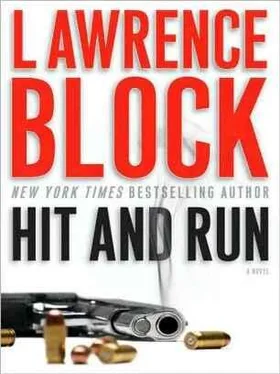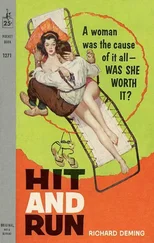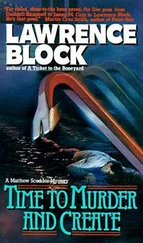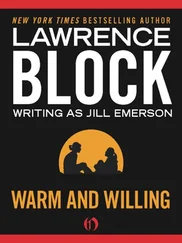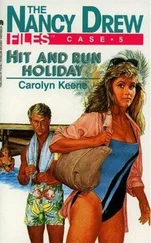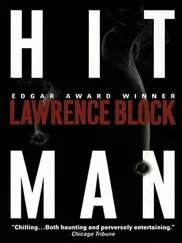The two couples didn’t stay long, and when they were alone Julia said, “Well, now I can go back to Wichita. God, the look on your face!”
“Well, for a moment there—”
“When I first moved back I had to keep telling myself I’d only be staying as long as he needed me. In other words, until he died. But I think I knew right away I was never going to leave again. It’s home, you know?”
“It’s hard to imagine you anyplace but New Orleans. Anyplace but this house, really.”
“There was nothing wrong with Wichita,” she said, “and I had a life there. My yoga class, my book group. It was a place to live, but it isn’t a place to return to.”
He knew what she meant.
“I could go someplace else, and in a couple of months I could re-create my life in Wichita. Maybe it would be Pilates instead of yoga, maybe I’d take up bridge instead of trying to puzzle out what Barbara Taylor Bradford really meant. But it would be the same life, and my new friends would be the same as my Wichita friends, and just as replaceable when I moved somewhere else a few years down the line.”
“And now?”
“Now I’ll have to go through his things, and figure out what to give away and where it should go. Will you help me with that?”
“Of course.”
“And we’ll have to clean out that room. All the smells, the cigarette smoke and the sickness. I don’t know what I’m going to do with his ashes.”
“Don’t people bury them?”
“I guess, but doesn’t that sort of defeat the whole purpose? Like you wind up with a grave after all? I know what I’d want.”
“What?”
“The same treatment your car got, but not the river. Just scatter my ashes in the Gulf. Will you take care of that, if you should ever have the chance?”
“Odds are you’ll be the one who has to figure out what to do with me. And that sounds as good as anything, by the way. The Gulf of Mexico’s as good a place as any.”
“Not Long Island Sound? You wouldn’t want to go home?”
“No, I like it here.”
“I think I’m going to cry.” She did, and he held her. Then she said, “Not too soon, okay? The Gulf’s not going anywhere. You stick around for a while, okay?”
Donny knew someone with a boat who was willing to take the two of them out on the Gulf. They were on the water for less than an hour, and when they docked, the ashes were scattered. The boat’s owner wouldn’t even take money for gas.
The rental firm picked up the hospital bed, and two young men in a white van came for the IV equipment. Keller had filled a trash bag with the bed linen and towels that had seen service in the sickroom, along with the pajamas and such that her father had worn there. Cancer wasn’t contagious, the clothes and linen could have been laundered, but he bagged it all and put it at the curb.
A friend of Patsy Morrill’s came to smudge the sickroom. Keller didn’t have a clue what that meant, but found out when the woman produced a bundle of what she said was dried sage, lit one end of it with a wooden match, and walked around the room, sending plumes of smoke here and there. Her lips were moving throughout, but it was impossible to tell what she was saying, or even if she was producing a sound. She did whatever it was she was doing for one of the longer quarter hours in Keller’s experience, and when she was done Julia thanked her carefully and asked if she would take money for her services.
“Oh, no,” the woman said. “But I would just about kill for a cup of coffee.”
She was an odd creature, elfin in stature, and both her age and her ethnic background were hard to guess. She praised the coffee effusively, then left her cup two-thirds full. On her way out, she told the two of them that they had a wonderful energy.
“What an odd creature,” Julia said, after they’d watched her drive away. “I wonder where Patsy found her.”
“I wonder what the hell she did.” He followed Julia into the sitting room and frowned. “Whatever it was,” he said, “I think it may have worked, unless it’s just a matter of substituting one smell for another.”
“It’s more than that. She changed the energy in here. And please don’t ask me what that means.”
It was a whole new experience for Keller. He hadn’t actually done anything he hadn’t done before. But this was the first time he’d stuck around to clean up after.
One evening after dinner the phone rang, and it was Donny. He read out an address across the river in Gretna. Keller copied it down, and the next morning he got out a map and figured out how to get there.
Donny’s truck was parked in the driveway of a one-story frame structure of the type Keller recognized as a shotgun house, long and narrow, with no hallways; the rooms were arranged one behind the other, and the name was supposed to come from the observation that you could stand at the front door with a shotgun and clear out the whole house with a single round. The style had originated in New Orleans shortly after the War Between the States (which is what Keller had lately learned to call the Civil War) and spread throughout the South.
This particular specimen was in sad shape. The exterior needed painting, there were slates missing from the roof, and the lawn was a wasteland of weeds and gravel. The inside was worse, the floor littered with debris, the kitchen filthy.
Keller said, “Gee, there’s nothing left for us to do, is there?”
“She’s a real beauty, isn’t she?”
“Was that a SOLD sign I saw out in front? Got to be one hell of an optimist who bought this place.”
“Well, hell,” Donny said, “I guess I been called a lot worse’n that.” He grinned, delighted with Keller’s openmouthed reaction. “Closed on her yesterday,” he said. “You ever see that cable show, Flip This House ? That’s my plan. A little love’s all it should take to turn this shithole into the prettiest house on the block.”
“Might take a little work,” Keller said, “mixed in with the love.”
“And a few dollars in the bargain. Here’s what I got in mind.” And he walked Keller through the old house, outlining his plans for its transformation. He had some interesting ideas, including adding a second floor onto the back half of the house, converting it into what was known locally as a camelback shotgun. That last, he conceded, was on the ambitious side, but it could make a big difference in the home’s resale value.
“So here’s what I’m getting at,” Donny said.
“The down payment took most of his cash,” Keller told Julia, “and the rest will go for materials and the other men, because he can’t expect guys like Dwayne and Luis to work on spec. But he figured maybe I’d be willing to roll the dice, and when it’s done and he sells it, I’d be in for a third of the net profit.”
“Which probably translates into a good deal more than twelve dollars an hour.”
“If the job doesn’t take too long, so the carrying charges don’t mount up too high. And if we get a buyer who’ll close in a hurry and pay a decent price.”
“I’d say you made your decision already.”
“How can you tell?”
“‘If we get a buyer.’ And what could you possibly say but yes?”
“That’s what I thought. The only downside is I won’t be bringing home any money for a while.”
“That’s all right.”
“No payments on the loan for the truck, and no contributions to the household budget.”
“It’s a hell of a situation,” she agreed. “If it wasn’t for sex, you’d be no use to me at all.”
It wasn’t until her father’s ashes were scattered and the sickroom emptied and smudged that Julia moved upstairs, to the bedroom she’d occupied as a child. Keller kept his own room, kept his things in the drawers and closet, but spent nights in hers.
Читать дальше
